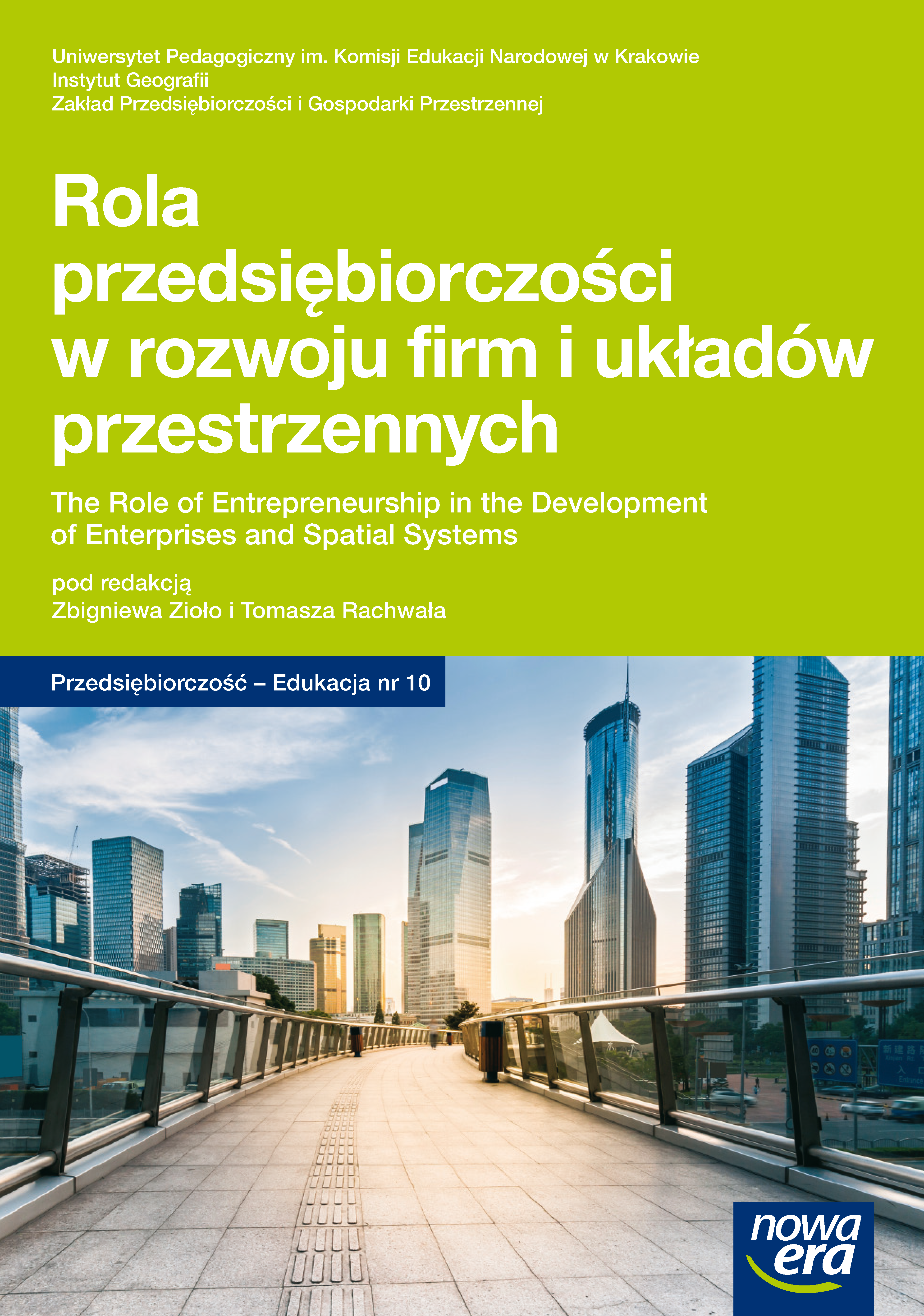The role of local entrepreneurship in the diversification of Valencia's tourism product (Spain)
DOI:
https://doi.org/10.24917/20833296.10.13Keywords:
local entrepreneurship, Spain, urban tourism, ValenciaAbstract
Urban tourism, which has been developing mainly in big cities with a centuries-long history, is one of the fastest growing form of tourism. Global transformation in the international tourist market moves cities towards the introduction of efficient restructuring that is necessary for adaptation to new trends in tourism as well as to offer different forms of recreation for tourists.The aim of the paper is to show the role of entrepreneurship of the local government and inhabitants for the development of various forms of urban tourism in Valencia, located on the Spanish coastof the Mediterranean Sea. Furthermore, the paper presents a number of institutional arrangements designed to increase tourism and improve the competitiveness of the city.
References
Aguiló, E., Alegre, J., Sard, M. (2005). The persistence of the sun and sand tourism model. Tourism Management, 26, 219-231.
Anton, S. (2011). Dinámicas de reestructuración de los destinos turísticos litorales del Mediterráneo. Perspectivas y condicionantes. W: D. López (ed.), Renovación de destinos turísticos consolidados. Valencia: Tirant Lo Blanch, 23-40.
Ashworth, G.J., Voogd, H. (1990). Selling the City: Marketing Approaches in Public Sector Urban Planning. London: Belhaven.
Bednarczyk, M. (red.) (2010). Przedsiębiorczość w turystyce. Zasady i praktyka. Warszawa: Wyd. CeDeWu.
Boira Maiques, J.V. (2007). La dársena histórica del puerto: transformaciones and El puerto en elsiglo XX y XXI. En Historia del Puerto de Valencia. Universitat de València.
Butler, R.W. (1980). The concept of a tourist area cycle of evolution: implications for management of resources. The Canadian Geographer, 24, 1, 5-12.
Estadísticas de turismo, 2012, (2014, 18 styczeń). Pozyskano z: http://www.turisvalencia-guias.info/ turisvalencia/estadisticas/#/1/zoomed.
Fabiańska, K. (1986). Planowanie rozwoju przedsiębiorstwa. Warszawa: PWE.
Garay, L., Cànoves, G. (2011). Life cycles, stages and tourism history: the Catalonia (Spain) experience. Annals of Tourism Research, 38, 2, 651-671.
González, R.F. (2008). El papel de los destinos turísticos en la transformación sociodemográfica del litoral mediterráneo español. Boletín de la Asociación de Geógrafos Españoles, 47, 79-107.
Grabowski, J. (2008). Projekty na rzecz rozwoju turystyki osób niepełnosprawnych. W: A. Stasiak (red.) Rola krajoznawstwa i turystyki w życiu osób niepełnosprawnych. Warszawa: Wydawnictwo PTTK „Kraj”.
Ivars J.A., Sánchez I.R., Vera Rebollo J.F. (2013). The evolution of mass tourism destinations: New approaches beyond deterministic models in Benidorm (Spain). Tourism Management, 34, 184-195.
Judd, R.D., Winter, W., Barnes, W.R., Stern, E. (2002). Tourism and Entertainment as Local Economic Development: A National Servey. D.R. Judd (red.) The Infrastructure of Play: Building the Tourist City. New York, M.E. Sharpe, 50-76.
Knowles, T., Curtis, S. (1999). The market viability of European mass tourist destinations. A post-stagnation life cycle analysis. International Journal of Tourism Research, 1, 87-96.
Kortan, J. (red.) (1997). Podstawy ekonomiki i zarządzania przedsiębiorstwem. Warszawa: Wydawnictwo C.H. Beck.
Kowalczyk, A. (2003). Geografia turyzmu. Warszawa: PWN.
Krajewski, K., Śliwa, J. (2004). Lokalna przedsiębiorczość w Polsce. Uwarunkowania rozwoju. Warszawa: Wydawnictwo Naukowe Wydziału Zarządzania UW.
Kuciński, K. (red.) (2010). Przedsiębiorczość a rozwój regionalny w Polsce. Warszawa: Wydawnictwo Difin.
Kunicki, K., Ławecki, T. (2008). Hiszpania – cuda świata. Warszawa: Wydawnictwo NMC.
Lew, A. (2008). Long tail tourism: new geographies for marketing niche tourism products. Journal of Travel & Tourism Marketing, 25, 3-4, 409-419.
Majewska, J. (2006). Wyzwalanie ducha przedsiębiorczości w środowisku społecznym gminy dla rozwoju lokalnego. Przedsiębiorczość – Edukacja, 2, 91-100.
Mika, M. (2007). Rodzaje i formy turystyki. W: W. Kurek (red.), Turystyka. Warszawa: PWN.
Oreja, J.R., Parra, E., Yanes, V. (2008). The sustainability of island destinations: tourism area life cycle and teleological perspectives. The case of Tenerife. Tourism Management, 29, 53-65.
Priestley, G., Mundet, L. (1998). The post-stagnation phase of the resort cycle. Annals of Tourism Research, 25(1), 85-111.
Prytherch, D.L. (2003). Urban planning and a Europe transformed: The landscape politics of scale in Valencia. Cities, 20(6), 421-428.
Prytherch, D.L., Boira Maiques, J.V. (2009). City profile: Valencia. Cities, 26, 103-115.
Sanchez, M. (1999). Fiestas Populares, Espana Dia a Dia, Madrid: Maeva Ediciones.
Zdon-Korzeniowska, M. (2009). Jak kształtować regionalne produkty turystyczne? Teoria i praktyka. Kraków: Wydawnictwo Uniwersytetu Jagiellońskiego.
Zdon-Korzeniowska, M. (2011). Marketing terytorialny jako forma działań przedsiębiorczych samorządów terytorialnych w Polsce. Przedsiębiorczość – Edukacja, 7, 188-196.
Zioło, Z. (2006). Rola przedsiębiorczości w podnoszeniu konkurencyjności społeczeństwa i gospodarki. Przedsiębiorczość – Edukacja, 2, 10-17.
Zioło, Z. (2007). Rola przedsiębiorczości w aktywizacji gospodarczej – zarys modelu. Przedsiębiorczość – – Edukacja, 3, 10-17.
Zioło, Z. (2011). Rola przedsiębiorczości w warunkach nasilających się procesów globalizacji. Przedsiębiorczość – Edukacja, 7, 10-23.
Downloads
Published
How to Cite
Issue
Section
License
Articles are published under the terms of the Creative Commons License (CC BY-ND 4.0; Attribution– NoDerivs).

